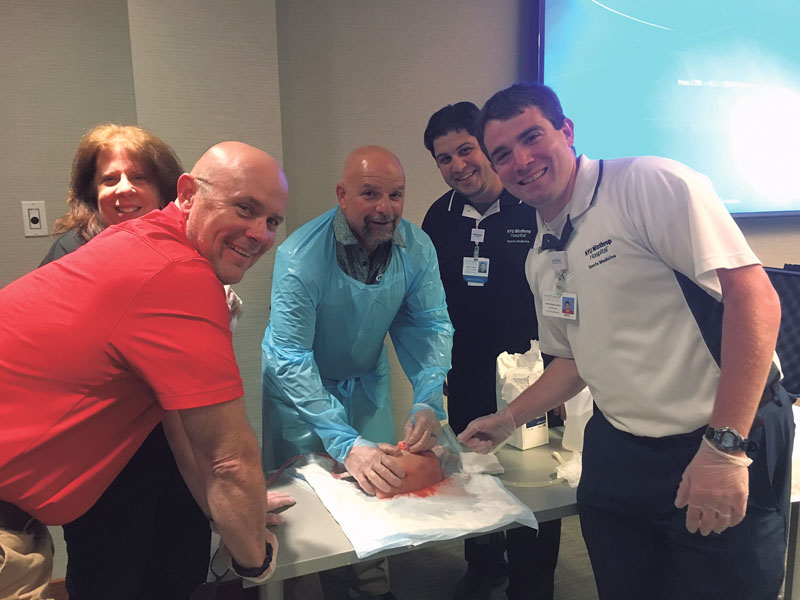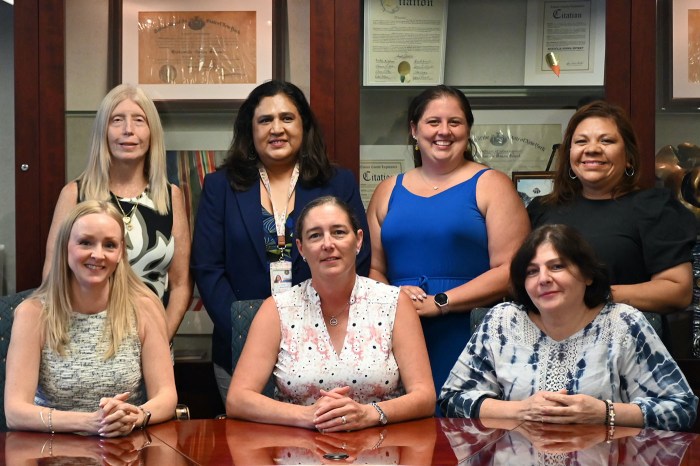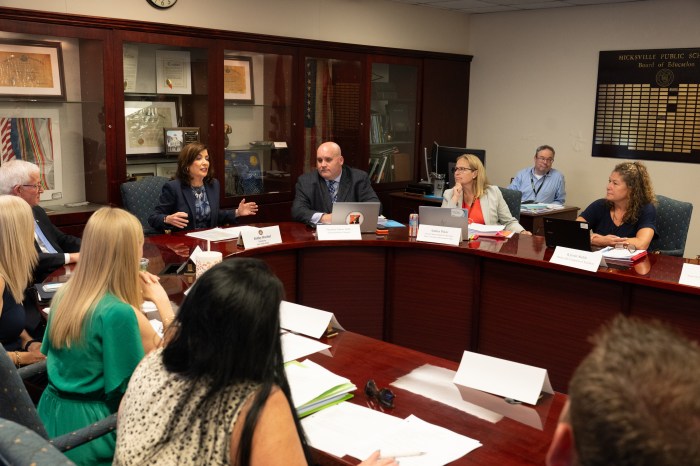
The Trauma team from NYU Winthrop Hospital recently expanded the scope of its Stop the Bleed program to more than a dozen athletic trainers who serve area high schools throughout Nassau County. Athletic trainers from Syosset and Locust Valley high schools participated in the training alongside NYU Winthrop’s Athletic Trainers who serve local high schools.
Knowledge gained through Stop the Bleed is most often associated with treating injuries following mass casualties, gun violence or car crashes, but sports injuries can also be very serious. By empowering the athletic trainers through Stop the Bleed, high school sports teams in Nassau County will now be better prepared to address a wide range of injury possibilities—including life-threatening bleeding.
“The NYU Winthrop Athletic Trainer team collaborates with physicians to provide preventative services, emergency care, clinical diagnosis, rehabilitation of injuries and more,” said Christopher Napoli, supervisor of Athletic Training Services at NYU Winthrop. “Empowering athletic trainers through Stop the Bleed helps round out their capabilities if faced with serious bleeding, enabling them to provide assistance to save lives
and limbs.”
NYU Winthrop’s athletic trainers are part of the hospital’s Sport Medicine program and the athletic trainers’ services include community outreach on acute care of injuries.
“Although most injuries that occur in athletics are relatively minor, life-threatening injuries are unpredictable,” said Tony Marra, athletic trainer at Locust Valley High School. “Now I’ll be equipped to provide lifesaving assistance during serious bleeding situations should they arise.”
Stop the Bleed is a national program that encourages first responders and everyday citizens to become trained to assist in a bleeding emergency until professional medical aid arrives. The program teaches tactics to recognize life-threatening bleeding and provide immediate response to control that bleeding including by direct pressure, the use of tourniquets, or packing (filling) a wound with gauze or clean cloth.
Organizations interested in more information about the program may contact Margarita Natal at mnatal@nyuwinthrop.org or 516-663-1580.

































